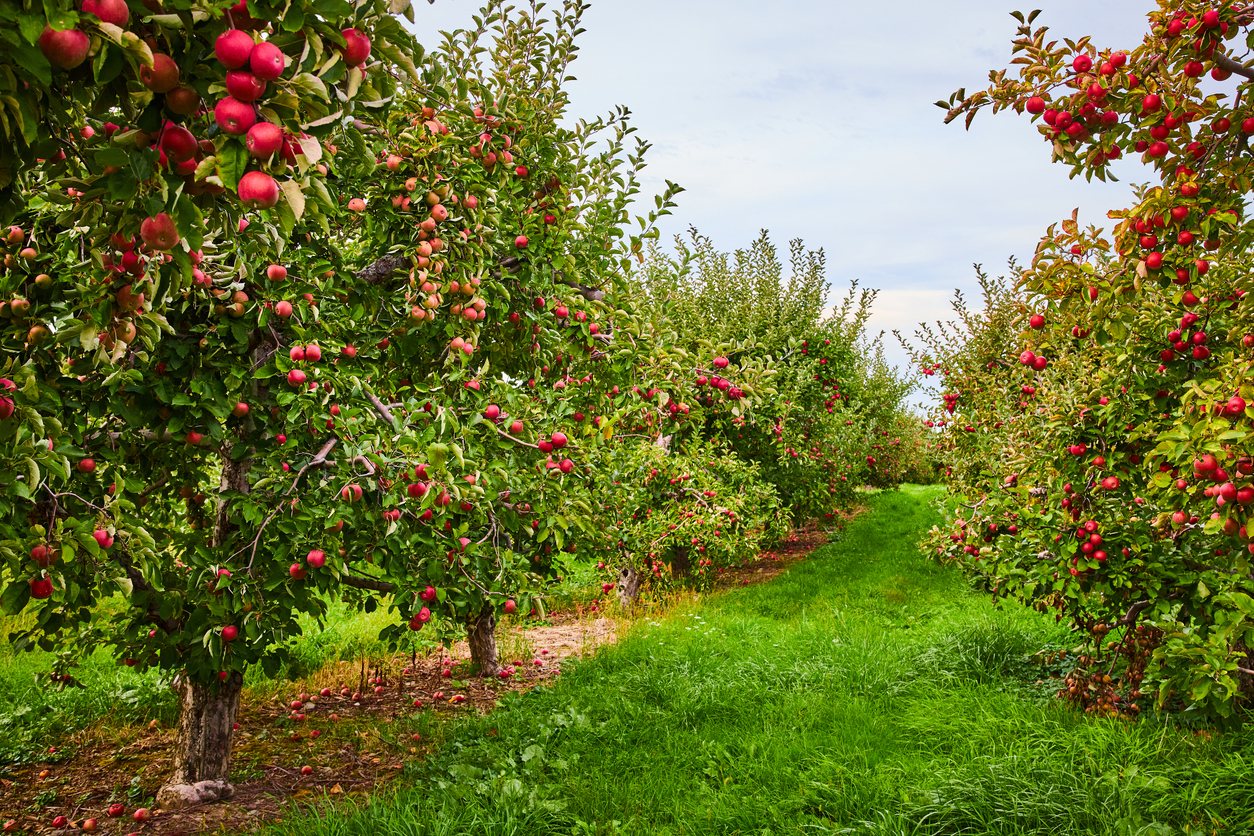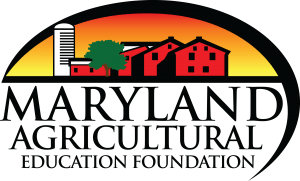
Rows of apple trees on an orchard farm
Apples and Genetics
Grades 6-8
Apples grown in orchards come in all shapes and sizes. Many also appear in different colors and have different tastes to them, some sweeter than others. However, new types of apples are constantly emerging in grocery stores. How do farmers create new apples? How are farmers able to grow certain apples with desired traits? The answers to these questions will be addressed in this lesson.
Teacher's Guide and Related Standards
Students will be able to explain how farmers can grow brand-new types of apples and apples with desired traits.
- How does genetics play a role in farmers producing brand-new apples with different shapes, sizes, colors, and tastes?
- How can farmers produce apples with the traits that they desire?
Maryland Farm & Harvest Clip
- Why are Honeycrisp apples so expensive compared to other apples?
- Why is Golden Delicious a favorite apple among people?
- What is a “noisy” apple?
Vocabulary
Supplemental Enrichment Activities
Apple Genetics: A Tasty Phenomena
Students will explore the various resources related to apple genetics. From the activities within this resource, students will develop and use genetic models. They should come away with learning that farmers have the ability to pick apple trees to cross and breed in order to increase their chances of producing apples with desired traits.
Variation of Traits
Apples and the Science of Genetic Selection
Students will complete a station rotation activity in which they will learn why there is a variation in apples and how farmers can use genetic selection to produce specific apples they want to grow, like Honeycrisp or Red Delicious apples.
Artificial Selection Infographics
Students will analyze two different models. In the first model, students will see how the structure of an apple’s DNA dictates the structure of the proteins produced in apples and how the proteins correspond to variations in the traits of apples. In the second model, students can see how farmers can look at the structures of apples and cross certain apples to produce the apples they desire.
Career Connections


